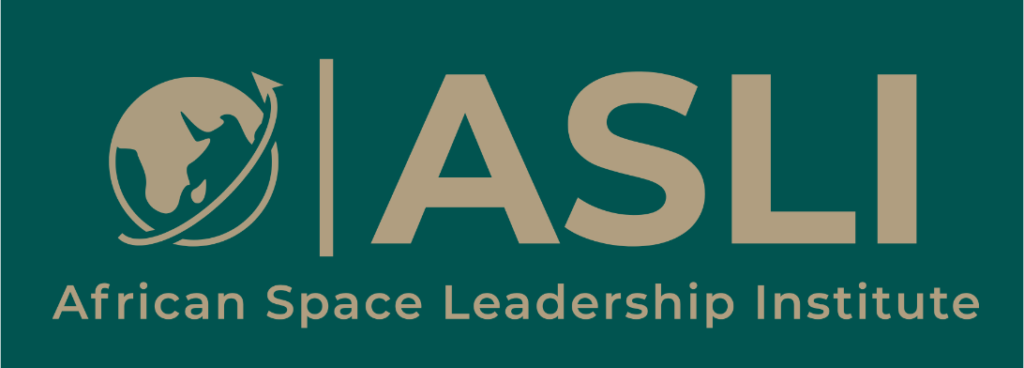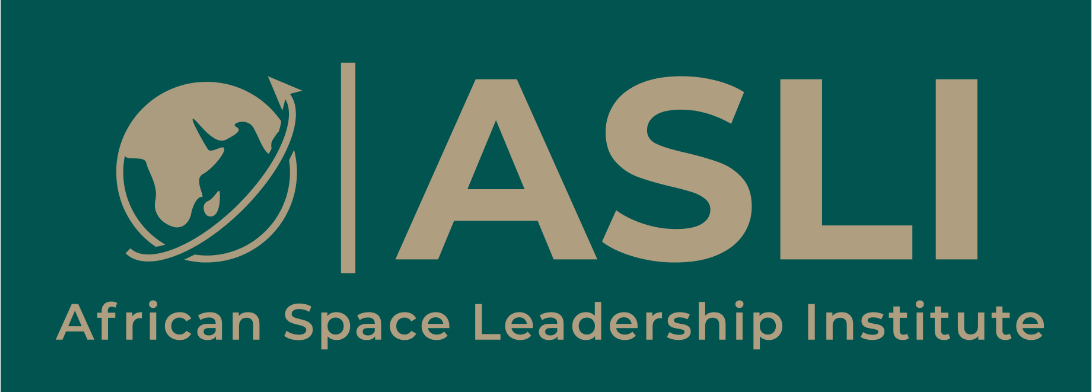2nd ASLI COLLOQUIUM ON THE AFRICAN OUTER SPACE PROGRAMME
Theme: Transforming the African Space Industry through Investments, Incentives and Innovations
27-29 May 2025
Call for Participation
Introduction
Africa’s space sector is becoming a key driver of Africa’s socioeconomic development in areas such as agriculture, telecommunications, transport, logistics, climate monitoring, security and infrastructure development. African countries are recognising space as an important sector, leading to new national space policies, increasing space activities, procurement of satellites, and development of satellite services and applications. The African Union (AU) has also adopted a continental space policy and strategy, and established the African Space Agency (AfSA) to coordinate and drive continental space efforts. With these efforts, Africa could become a competitive player in the global space economy, leveraging space technology to drive economic growth, innovation, and sustainable development.
Hence, the African Space Leadership Institute (ASLI) is organising the 2nd ASLI Colloquium on the African Outer Space Programme, with the theme: “Transforming the African Space Industry through Investments, Incentives and Innovations.” The Colloquium will bring together policymakers, industry leaders, researchers, and international stakeholders to examine the current state of Africa’s space industry and discuss the critical elements required to accelerate the growth of the sector and position it for global competitiveness.
The Colloquium will address policy and regulatory frameworks essential for fostering a thriving space industry. It will also highlight technological advancements and research in satellite development, artificial intelligence, and data-driven space applications. Additionally, discussions will focus on commercialising space technologies, unlocking economic opportunities in satellite services, space-based solutions, security, digital connectivity and partnerships. A key priority will be capacity building and workforce development, ensuring Africa cultivates the next generation of space scientists, engineers, and entrepreneurs while promoting inclusivity across fields, languages and economic states.
The African space industry is at a pivotal moment. By addressing these critical areas, the Colloquium aims to shape actionable strategies that will drive sustainable growth in Africa’s space industry, ensuring its long-term usefulness, competitiveness and contribution to global space advancements.
Call
We hereby invite abstracts on a topic that will fit into the general theme of the colloquium.
Contributions are expected to address any aspect of the African space ecosystem, including but not limited to:
- Measuring the African space industry
- Education, training and workforce development
- Infrastructure development
- Space startups and SMEs
- Value-chains and Supply-chains
- Financing, Risks and Insurance
- Research, Development and Commercialisation
- Knowledge/Technology Transfer
- Space applications and services
- National and continental policies
- Regulatory and governance regimes
- Public-Private Partnerships
- Intra-Africa cooperation and trade
- International partnerships and trade
Guidelines
The abstracts should be no longer than 250 words, single-space, 12-point Time New Roman font. It should demonstrate your paper’s connection to theme of the colloquium. English is the language of communication for the colloquium.
Please submit abstracts using this form.
Submitted abstracts will be evaluated for for relevance and quality. All authors will be informed about the outcome of the selection process. Whether an author’s abstract is selected or not, all are welcome to participate in the colloquium.
Authors of selected papers are expected to make an oral presentation (max. 15 minutes). After each paper presentation, authors will join a panel discussion for that session.
It is highly recommended that when developing papers for submission that you or your research group use the African Space Policy, African Space Strategy and Agenda 2063 as reference frames, as these form the anchor tenets for the African Space Programme.
Key dates
24 Feb 2025. Call for Abstracts
28 March 2025 Abstract submission deadline
7 April 2025 Notification of accepted abstracts/Registration for Colloquium opens
16 May 2025 Deadline for submission of full paper
23 May 2025 Registration for Colloquium ends
27-29 May 2025 Colloquium
Agenda
Please see here for draft agenda.
For further enquiries, please contact info@aslispace.org

